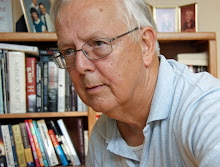 |
| Did Tsar Nicholas II lead us to the Information Superhighway? |
Like tsars and tsarinas for centuries before him, Nicholas was a despot who despoiled the Russian peasantry. He and his family lived in grand isolation, living off the labors of millions of miserable serfs who were barely more than slaves. Then along came war in 1914, and Nicholas decided to fight the forces of Kaiser Wilhelm--with the blood of his serfs, who eventually objected and overthrew him. But there remained numerous conflicting interests, allowing a small group called the Bolsheviks to wrest power. They established the Union of Soviet Socialist Republics (USSR), withdrew from the war, and inflicted untold additional pain upon their own countrymen. Stalin, Trotsky, Lenin and their ilk were godless communists.
From afar, America looked on the USSR with a combination of fascination and dread. Even as our allies in World War II, America's establishment hated them. After the war, they got The Bomb. Would there be a World War III? When in 1957 Sputnik circled the Earth, Americans saw the vivid threat and the space race was on. Throughout the 1960s we fretted over potential nuclear attacks from ICBMs and Bison bombers. If the Soviets destroyed certain of our mainframe computers, they would leave us defenseless. So in 1969 we (and not Al Gore) created a network of computers across the country and called it the Internet. That way, our defense never depended on the functionality of one specific computer.
So the space race brought microchips and satellite technology to the world, along with less memorable innovations such as Tang. The Internet eventually became public and birthed the World Wide Web, which truly boomed with the continuous advent of smaller and smaller devices processing more and more data at faster and faster speeds. Thus the iPhone, Microsoft Windows, and blogs such as this one.
In the 1970s a PBS series called Connections attempted to establish historical links between, say, cow pox and nuclear energy, or the Magna Carta and agricultural policy in Kansas. (I made up those examples, but you get the idea.) In that spirit, it seems reasonable to ask: If Tsar Nicholas had only shown a little more compassion to his people, would Google exist today?









